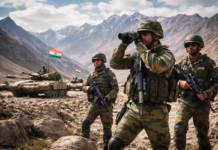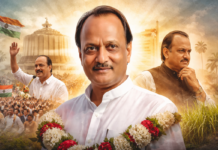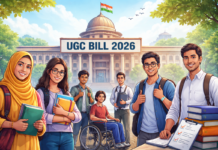The Case of Umar Khalid: A Question of Justice: Under UAPA
In the same year, on September 14, Umar Khalid, former student of JNU and activist was arrested by the Delhi Police’s special cell under the Unlawful Activities Prevention Act or UAPA. The arrest was made in connection with the riots that happened in Northeast Delhi in February 2020 in which 53 people were killed most of them were Muslims. Four years later, Khalid still detained at Tihar Jail, his applications seeking bail denied constantly, and he is still defending himself.
Even under new UAPA provisions the Supreme Court has held that bail should be granted under Section 167(2) of the CrPC. However, Umar Khalid aged 36 years is still in detention though there are no chances of his release on bail. He has dismissed the charges by arguing that he only went to the extent of exercising his democratic principle of freedom of assembly and free speech.
The Larger Conspiracy Case
More than 2500 people have been arrested in BLM-related incidents after the riots that took place back in 2020. From those arrested, the more than two thousand have since been released on bond. However, Umar Khalid continues to be implicated in a case which has been coined by the authorities as ‘bigger conspiracy’ case involving 17 accused. Despite the fact that many of such people have been released on bail, efforts to secure Khalid’s release on the same bail have always been rejected.
lt is possible to point to numerous delays of Umar Khalid case, and most of them are definitely staggering. This was the first bail refusal from the charges right from the arrest of the suspect, which was in March 2022, eighteen months back. He has not been successful in his subsequent attempts such as; in October 2022 appealing to the Delhi High Court and again in 2023, Supreme Court. It would be recalled that his bail application has been adjourned to and fourteen times since February this year because of other reasons such as lawyers being unavailable or the prosecution not being ready. A case in point is on August 16, 2023 when the Bench consisting of Justice A. S. Bopanna and Justice P. K. Mishra had to rise from the hearing of his matter on the grounds of administration.
Such delays greatly arouse issues with regard to the fairness of judicial proceedings and the justice that the courts are alleged to serve. Together, I and many others had raised substantive arguments on his bails and applications for release, yet, Khalid has now been detained for four years with no trial, and in violation of his constitutional rights under Article 21 of the Nigerian Constitution which provides the right to life and personal liberty.
Bail in UAPA Cases:
What is at stake here is a legal principle The wording of the quoted legal provision appears intentionally designed to obstruct human understanding of what it is saying As a legal principle the Common Law rule seems quite reasonable
The issues of bail remain a foundation of any criminal justice system and the legal principle of the same. It is a basic precept that ‘bail is the norm and jail is the extraordinary’, applicable to UAPA detainees as well. This principle was again restated as recent as August, 2023 in the case of the matter before the Supreme Court being the bench comprising of Justices Abhay S.Oka and Augustine George Masih. The bench observed that except in the rarest of the rare cases, it is unconstitutional not to grant bail, even under the UAPA.
However there has been a common disagreement on bail orders and this has been a cause of controversy. Sanjay Hegde, senior advocate also stressing that it is due to the polyphonic structure of Supreme Court where different benches deliver judgments that are quite distinct and different from each other due to their composition. In Khalid’s case, for instance, he postulates, the case may not have been handled by a bench that was aligned to what has been considered the new liberal leaning judgments. Thus, Hegde aptly noted that speech cannot be imprisoned ‘for people cannot be detained in prisons for speeches,’ and more so, where the meaning of these speeches itself is arguable.
A Travesty of Justice?
The cruel fact in how bail is granted is perhaps best said by Senior Adv Sanjoy Ghose where he said that individuals who are accused of murder and rape get bail more quickly than Umar Khalid. According to Ghose what is in trial is not mere Khalid and India’s justice delivery system.
They think Umar Khalid’s case is not about an individual; it embodies the confrontation between the freedom provided by the constitution and the curtailment verging on the unconstitutional accomplished by the UAPA. To date, Khalid has been detained for a period of four years yet to receive a proper trial and this is more so a violation of both justice and fairness. For saying this, Banerjee, another senior advocate observed: “What is happening to him is a gross violation of Article 21 of the Constitution.”
Conclusion: A Call for Reflection on Justice and Rights
Umar Khalid’s prolonged detention raises troubling questions about the state of justice, fundamental rights, and dissent in India. His case is a litmus test for the country’s constitutional courts—will they uphold the core tenets of justice, or will they allow the constraints of the UAPA to overshadow basic human rights?
As Khalid awaits trial, the eyes of the nation are on the judiciary. Will they protect the rights enshrined in the Constitution, or will Khalid’s case become another example of the misuse of draconian laws like the UAPA? The answer will have far-reaching consequences, not just for Khalid, but for the future of justice and dissent in India
Umar Khalid was student of which University?
Khalid studied history at the Kirori Mal College of the Delhi University.







